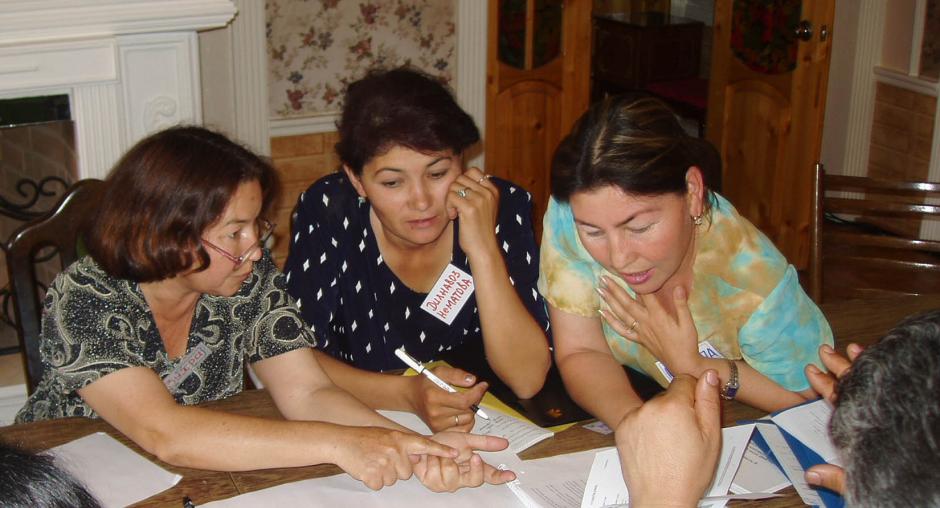Newsroom
OSCE Centre in Tashkent to train domestic election observers
TASHKENT 9 June 2004

(OSCE)Participants discuss election rights and responsibilities of citizens in Samarkand, 2 June 2004, at a training course of the OSCE Centre in Tashkent for domestic election observers. (OSCE) Photo details
TASHKENT, 9 June 2004 - The OSCE Centre in Tashkent will begin training courses for domestic election observers in Andijan tomorrow. The programme is intended to prepare observers for the elections on 26 December, after which Uzbekistan will switch from a single to a two-chamber parliament.
The courses are conducted in collaboration with the Friedrich Ebert Foundation and the non-governmental organization, Renaissance. Similar courses have been held in Nukus and Samarkand.
According to Uzbek legislation, domestic election observers can participate in the overall electoral process as representatives of candidates of political parties and initiative groups, but not as independent election observers. Independent domestic election observers are not foreseen in the law at all.
The training includes sessions on election-related legislation in Uzbekistan, the responsibilities and rights of observers in compliance with the law as well as OSCE/Office for Democratic Institutions and Human Rights (ODIHR) election observation standards.
The courses are conducted in collaboration with the Friedrich Ebert Foundation and the non-governmental organization, Renaissance. Similar courses have been held in Nukus and Samarkand.
According to Uzbek legislation, domestic election observers can participate in the overall electoral process as representatives of candidates of political parties and initiative groups, but not as independent election observers. Independent domestic election observers are not foreseen in the law at all.
The training includes sessions on election-related legislation in Uzbekistan, the responsibilities and rights of observers in compliance with the law as well as OSCE/Office for Democratic Institutions and Human Rights (ODIHR) election observation standards.
